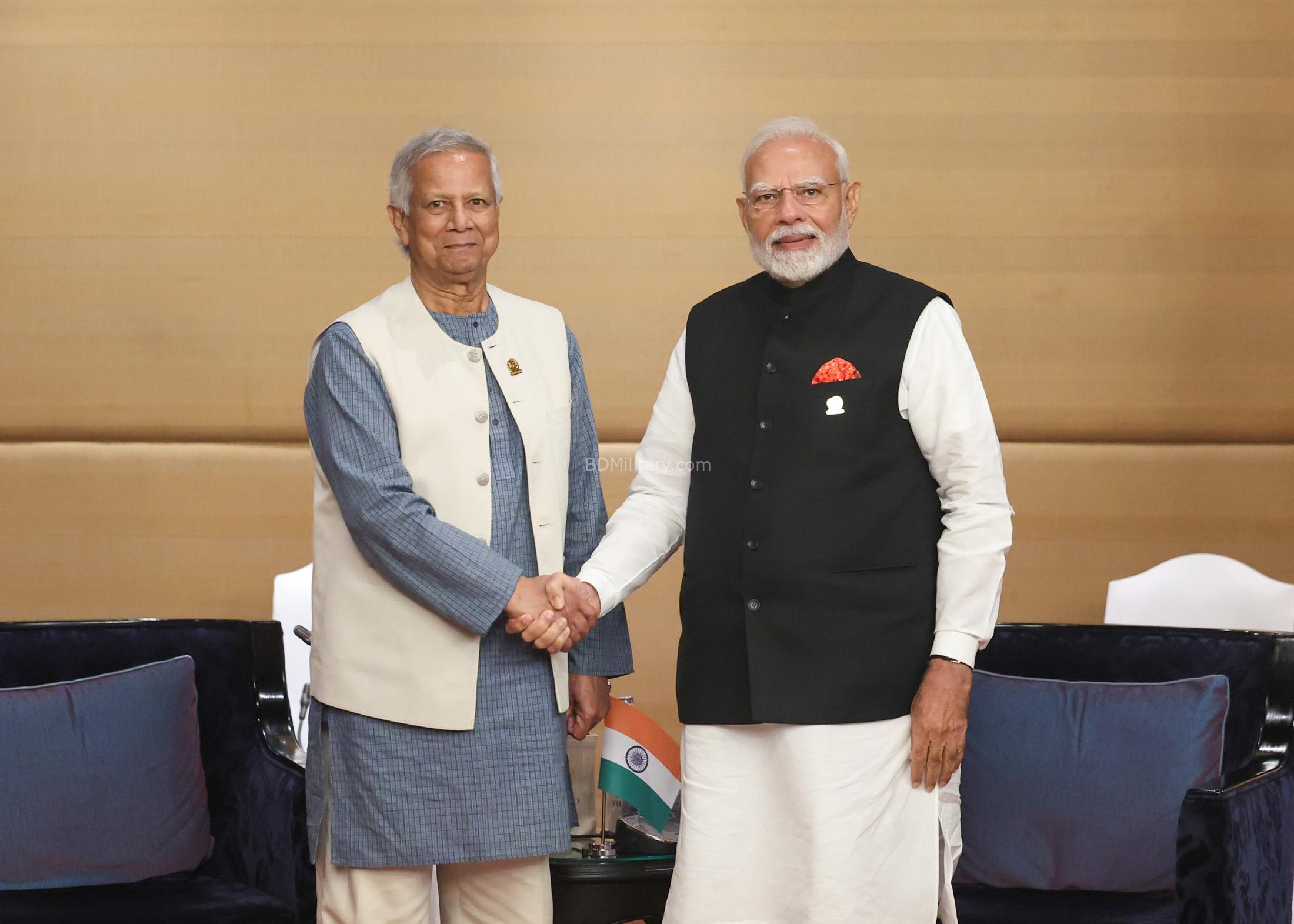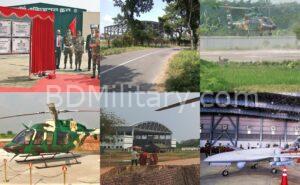In a decisive policy shift, the Hasina administration has cancelled ten India-linked projects—several of which were tied to lines of credit (LoCs) and defence cooperation—while placing a number of others under comprehensive review. The move, though framed as an economic and administrative reassessment, carries clear national security and strategic implications for Bangladesh’s regional posture.
Security Rationale Behind the Reassessment
Sources within Dhaka’s policymaking circles indicate that the reviews were driven by concerns over strategic dependency, sovereignty of infrastructure, and security of critical assets. Several connectivity projects—including the Tripura–Chattogram rail link, Agartala–Akhaura railway, and Ashuganj–Agartala corridor—were seen as offering India logistical leverage over Bangladesh’s transport network, particularly in the eastern sector.
The Feni River Water Management Project and similar hydrological agreements were also reconsidered amid rising apprehension over cross-border water control and its implications for food and human security in Bangladesh’s south-eastern regions.
Maritime and Defence Dimensions
Of particular note is the cancellation of the proposed procurement of an ocean-going tugboat from India’s Garden Reach Shipbuilders and Engineers (GRSE), which had been negotiated under a defence Line of Credit (LoC). Although the platform itself was non-combatant in nature, its acquisition under a foreign-financed defence framework raised questions within strategic circles about long-term dependency, maintenance sovereignty, and operational discretion in naval logistics.
Bangladesh’s naval modernisation programme has, over the past decade, increasingly emphasised indigenous support infrastructure and diversified procurement sources, reflecting lessons drawn from earlier asymmetric dependencies. The cancellation of the GRSE deal may therefore be interpreted as part of a broader effort to consolidate maritime autonomy within the Bangladesh Navy’s support and sustainment capabilities.
Energy and Infrastructure: Economic Security Meets Strategic Autonomy
The Adani Power electricity import agreement—currently under review—has become emblematic of Dhaka’s evolving energy security doctrine. Policymakers now appear focused on balancing cross-border energy cooperation with domestic generation and regional diversification, ensuring resilience against price volatility and single-source exposure.
Similarly, projects such as the India Economic Zones (Mongla and Mirsharai) and the Farakka Barrage financial cooperation framework have been shelved, underscoring a shift towards greater control over critical infrastructure financing.
Implications for Bangladesh’s Regional Security Posture
From a national security standpoint, the cancellations reflect a maturing strategic outlook within Dhaka—one that prioritises sovereignty in decision-making and multi-vector engagement over legacy alignments. While the Hasina government continues to express commitment to friendly relations with India, the decisions signal an insistence on mutual respect and strategic balance, particularly in sectors touching defence, energy, and critical logistics.
As Bangladesh recalibrates its regional engagements, the emphasis appears to be on developing self-reliant security capabilities, strengthening national command over dual-use infrastructure, and preserving strategic flexibility amid a shifting South Asian security landscape.
BDMilitary Team’s Assessment
Bangladesh’s decision to cancel or review several India-linked projects represents more than bureaucratic adjustment—it signifies a strategic course correction aimed at reinforcing national autonomy across critical sectors. From a defence and security perspective, this recalibration aligns with a growing understanding within Dhaka’s strategic community that overexposure to a single partner—particularly in areas tied to sovereignty-sensitive domains—can erode long-term operational flexibility.
The cancelled GRSE ocean-going tugboat deal, though modest in scale, is emblematic of this shift. The Bangladesh Navy’s procurement strategy increasingly seeks platforms that come with unrestricted operational rights, local sustainment options, and transferable technologies. A move towards suppliers offering greater transparency and customisation aligns with the service’s “Blue-Water Vision,” which emphasises independent support capacity over foreign credit dependency.
In the broader picture, Bangladesh is signalling its intention to remain strategically equidistant between regional powers. While India remains a vital neighbour, Dhaka’s recent moves suggest a preference for pragmatic diversification—balancing relationships with China, Turkey, the United Kingdom, and Western defence industries. This ensures both strategic hedging and technological diversity in future capability development.
Economically, the reassessment dovetails with security imperatives. Controlling the financing, ownership, and maintenance of infrastructure—especially ports, energy grids, and water systems—directly supports national resilience. In modern hybrid security contexts, these assets are as crucial as conventional defence platforms.
Ultimately, the cancellations should not be viewed as anti-Indian, but as pro-Bangladeshi in orientation. They mark a transition from aid-driven cooperation to interest-based partnership, signalling that Dhaka intends to define its defence and development trajectory on its own strategic terms.
Annex: Cancelled and Reviewed India-Linked Projects (2016–2024)
| Project/Agreement Name | Sector | Year Signed | Current Status | Remarks |
|---|---|---|---|---|
| Tripura–Chattogram Rail Connectivity Project | Transport / Rail | 2017 | Cancelled | Strategic corridor providing India transit access via Bangladesh. |
| Agartala–Akhaura Rail Expansion | Transport / Rail | 2018 | Cancelled | Connectivity link under Indian LoC; halted amid security review. |
| Ashuganj–Agartala Corridor Project | Transport / Road | 2016 | Cancelled | Considered sensitive for cross-border logistics control. |
| Feni River Water Management Project | Water / Environment | 2019 | Cancelled | Cancelled due to sovereignty and ecological concerns. |
| Kushiyara River Water Sharing Project | Water / Environment | 2022 | Active | Only major water-sharing deal still maintained. |
| Road & Maritime Use of Chattogram Port Agreement | Transport / Maritime | 2018 | Cancelled | Access arrangement withdrawn pending review of security implications. |
| Farakka Barrage Financial Cooperation Framework | Infrastructure / Water | 2023 | Cancelled | Financing and technical cooperation terminated. |
| Sylhet–Shillong Connectivity Project | Transport / Road | 2020 | Cancelled | Cancelled on national security and economic viability grounds. |
| Petroleum Pipeline Management Project | Energy | 2019 | Cancelled | Concerns raised over pricing control and dependency. |
| Indian Economic Zones (Mongla and Mirsharai) | Industrial / Economic | 2019 | Cancelled | Indian LoC-based zone shelved to prioritise domestic investment. |
| Adani Power Electricity Import Deal | Energy | 2017 | Under Review | Cost structure and import dependency under reassessment. |
| Gas Pipeline Agreement | Energy | 1999 | Renewed / Under Review | Renewal negotiations ongoing. |
| Teesta River Water Sharing Agreement | Water / Environment | 2011 | Under Discussion | No final agreement reached; politically sensitive. |
| GRSE Ocean-Going Tugboat for Bangladesh Navy | Defence / Maritime | 2024 | Cancelled | Cancelled under Defence LoC; reflects maritime autonomy policy. |

Ayesha Farid is a regional security specialist focusing on South Asia, with over a decade of experience analysing inter-state tensions, cross-border insurgency, and regional power dynamics. She has worked with leading policy think tanks and academic institutions, offering nuanced insights into the complex security challenges shaping the subcontinent. Ayesha’s expertise spans military doctrines, border disputes, and regional cooperation frameworks, making her a vital contributor to BDMilitary’s coverage of South Asian strategic affairs. She leads the Geopolitics & Diplomacy section at BDMilitary. Ayesha holds a dual master’s degree — a Master in International Relations from the IE School of Politics, Economics & Global Affairs, Spain, and a Master of Public Policy from the Munk School of Global Affairs, University of Toronto, Canada — combining deep academic insight with practical policy expertise.

